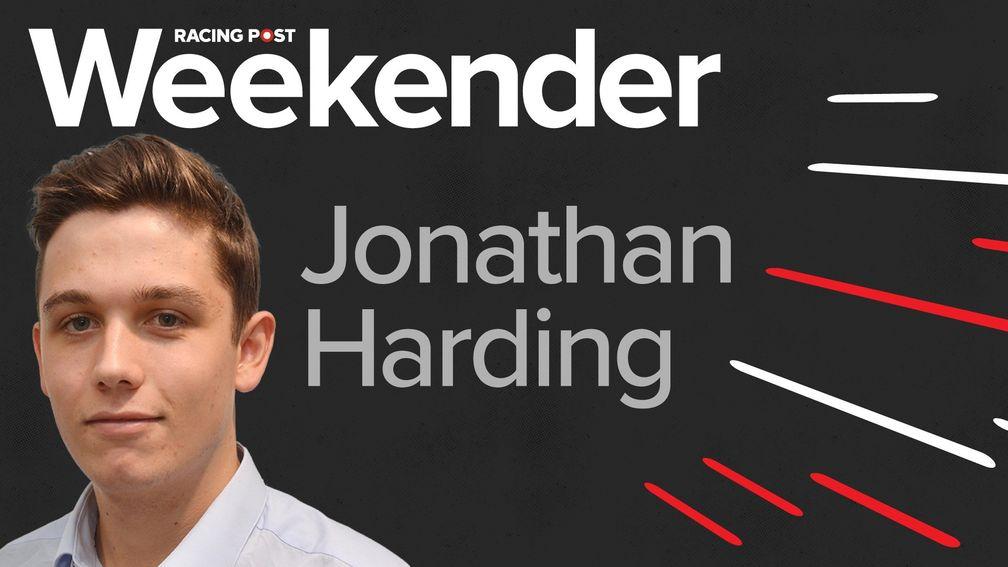Racing should embrace innovation - but for the many, not the few

Every day is a school day when you cover racing for a living and last weekend I finally learned the origin of the Weatherbys Super Sprint, as it was discussed by winning trainer Richard Hannon on Racing TV.
It was devised by his father, four-time champion trainer Richard Hannon snr, and Lord Carnarvon in the 1990s as a lucrative prize for two-year-olds who did not cost an absolute fortune in the sales ring.
The sprint is limited to runners who cost no more than £63,000 as yearlings – with 1lb deducted in the weights for every £5,000 they fall below that figure – meaning it often affords smaller owners and syndicates with a rare opportunity to compete for big prize-money.
Unsurprisingly, it has provided a number of rags-to-riches stories, not least that of Paris House, who cost £5,000 and won the first running in 1991 before landing the Group 2 Flying Childers Stakes.
Racing is often criticised for being resistant to change – sometimes with good reason – but the Super Sprint is a long-standing example of what can happen when the sport decides to embrace innovation.

That brings me neatly on to the inaugural Racing League, an out-of-the-box idea that continues to divide opinion. It involves teams of trainers and jockeys competing in a series of £50,000 handicaps over six weeks, with the first beginning at Newcastle on July 29.
As with any new idea, the Racing League has already been written off by some who view the radical new concept as a gimmick and rightly question how it fits in with the established racing calendar.
Yet behind the regrettable PR waffle of "positively disrupting" the racing industry, there are plus points to be taken from the venture. Straight off the bat, it is going to be competitive racing with 12 runner-fields and the team element will add some extra intrigue.
More broadly speaking, the Racing League represents a concerted effort to innovate and reach a new audience. The sport is guilty of preaching to the converted at times, so any attempt to mix things up to try to attract a different type of fan should be considered.
That is a noble endeavour but money talks and one of the big selling points of this new initiative, which is often wheeled out by its fans on social media, is the fact it has received such huge financial support.
At a time when returns in British racing remain embarrassingly low compared to every other major racing jurisdiction, a guaranteed £1.8 million in prize-money, without factoring in various bonuses, was always going to raise a few eyebrows and should be celebrated.
This was neatly surmised by Charlie Fellowes, who is among the trainers set to take part in the league. He was involved in a familiar back-and-forth Twitter debate about the new concept on Sunday.
And he said: "Returns to the industry by bookmakers in this country are significantly lower than anywhere else in the world. As a result, concepts like the Racing League are dreamed up to attempt to paper over the cracks. It's obviously not perfect but it can be grown."

There is an argument to say the Racing League is a product of poor prize-money, particularly given its focus on 0-90 handicaps, but its injection of funds does not mean it can be immune from criticism, and one of the big ones stems from the calibre of trainers involved.
The Racing League has attracted some of the biggest names in the sport, which has led to loose comparisons to the failed European Super League, a sinister attempt by several major football clubs to consolidate their wealth by competing in a closed competition.
This goes a little too far as the Racing League should, at least in theory, slot relatively neatly into the racing programme, while the much-maligned Super League was a real threat to domestic leagues. Also, all trainers are perfectly entitled to take part in the initiative.
However, for a competition designed to invest in the lower levels of the sport, it is disappointing more smaller yards, and owners, are not involved this year as they would clearly benefit more from the opportunity than Group 1-winning trainers with hundreds of horses.
The organisers maintain that all trainers were invited by letter to register their interest, which is disputed by several of them, but that does not alter the fact that even if they were eager to join, it is far easier for some yards to magic up competitive horses than others.

There is a well-founded fear that owners with horses who qualify for the league might be tempted to move them from a smaller stable, where they are among the top horses, to one of the big trainers. After all, who in their right mind would be content with running for £10,000 in comparable handicaps when they could run for £50,000?
The desire to market the big names is understandable, but it is vital the Racing League attracts a broader range of trainers next season. It is no good pumping money into the lower levels of the sport if many of the people who stood to benefit feel they were excluded.
People have been quick to dismiss this new league but I believe, much like the Super Sprint, it is an interesting concept that could benefit the sport by attracting a new audience – although I would imagine we are a few years away from hundreds of people turning up in replica jerseys to support their favourite jockeys and trainers.
However, to truly benefit racing in the long term, it must become even more accessible for smaller yards and owners, perhaps with the foundation of a second league to showcase lesser-known talent. Innovation is wonderful – but it must be for the many, not the few.
Read more:
'Positive disruption' is the aim as Racing League unveils first team sponsors
'It works for betting and it works for punters' – bookmakers back Sunday Series
The Weekender is out every Wednesday and is available at all good stores. You can also download the edition from 9pm on Tuesday evening
Published on 21 July 2021inComment
Last updated 09:29, 21 July 2021
- The whole shape of the Irish Flat season is being defined by one man only - and even his main targets lie elsewhere
- Analysis: Flutter and 888 have enjoyed contrasting fortunes but they still have things in common
- Only a baby step but an important one if racing is to keep some of its David v Goliath moments
- There are so many great betting opportunities on Saturday - here are my best bets including a very strong Curragh fancy
- Coolmore and Godolphin spare the sport some embarrassment - and not for the first time
- The whole shape of the Irish Flat season is being defined by one man only - and even his main targets lie elsewhere
- Analysis: Flutter and 888 have enjoyed contrasting fortunes but they still have things in common
- Only a baby step but an important one if racing is to keep some of its David v Goliath moments
- There are so many great betting opportunities on Saturday - here are my best bets including a very strong Curragh fancy
- Coolmore and Godolphin spare the sport some embarrassment - and not for the first time